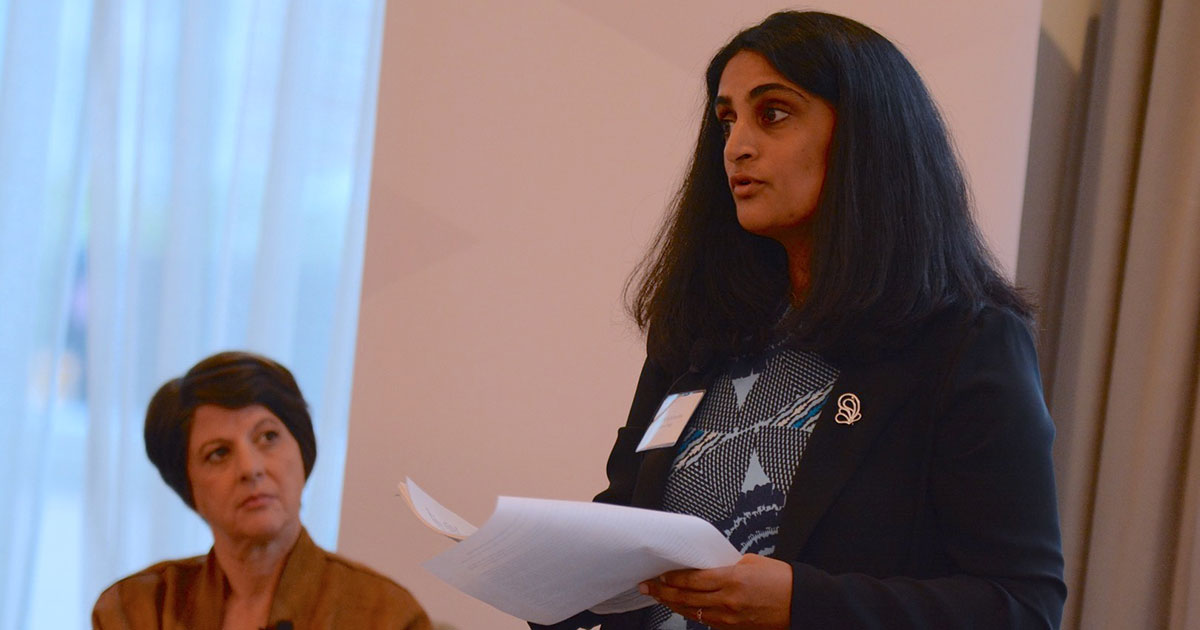What Happens to a Woman-Led Business After Startup?

The growth of a business isn’t all about the money.
Well, a lot of it is. But, the acceleration and success of a business after the startup phase requires much more than financing. And, unfortunately, there seems to be a lot more—often invisible—hurdles for women.
Beyond the Bucks
Bank of America and Babson College just announced findings of a new study of women entrepreneurs. Specifically, the study looked at how they overcome challenges to business growth beyond venture funding.
The study, part of a larger research collaboration between Babson College’s Center for Women’s Entrepreneurial Leadership (CWEL) and Bank of America Private Bank, found that women who have built successful companies had to navigate significant gender-based obstacles. In doing so, these women created alternate paths to success for themselves, and for other similarly unstoppable female entrepreneurs.
Findings were presented at a gathering in Boston of more than 100 female entrepreneurs, and published in a new report, “Beyond the Bucks: Growth Strategies of Successful Women Entrepreneurs.”
The report summarizes insights gathered through in-depth, one-on-one interviews with 30 women business owners, all of whom operate companies generating more than $5 million in annual revenues.
Women Are Turning Challenges into Opportunities
“The research found that gender-based barriers, such as misperceptions regarding market opportunities and access to traditional networks, are challenging, but none of these setbacks stopped these women from achieving success,” said Karen Reynolds Sharkey, business owner executive, Bank of America Private Bank. “By sharing their insights, we seek to support women entrepreneurs and enhance their business growth.”
Today, women own an estimated 12.3 million businesses that employ 9.2 million and generate more than $1.8 trillion in annual revenues. Through the collective experiences of women entrepreneurs in this study, three key themes emerged relating to the challenges they’ve faced when growing their businesses:
- Market misperceptions – Women entrepreneurs’ competency and market knowledge is routinely disregarded, including market opportunities they identify.
- Network exclusion – Women entrepreneurs often experience limited, gender-based, access to established social and business networks, creating less access to knowledgeable mentors and capital expansion.
- Managing expansion while underfunded – Barriers to startup and growth capital create new, ongoing challenges, including constraints on funding for recruitment, access to new markets, and overall expansion.
“Through this research, we identified several actionable strategies women entrepreneurs are using to turn the challenges they face into opportunities and grow their businesses,” said Lakshmi Balachandra, assistant professor of entrepreneurship at Babson College and the principal researcher on the project. “These include building on their skills and strengths, and leveraging their personal insights for sustainable growth.”
Much of the focus on women-owned businesses to date has been on the gender gap in venture funding. This groundbreaking study looks at women who have led companies to the growth phase and identifies several strategies they deploy today and might enable other entrepreneurs to accelerate their business growth, including:
- Explore various capital alternatives
- Build for the long term
- Develop a sustainable and talented workforce
- Buy from and fund women-owned businesses
- Be a mentor, seek a mentor
- Join or create new networks
- Capitalize on personal insights and experiences
“Our goal is to help other women entrepreneurs identify opportunities for similar accelerated growth as we celebrate and encourage the creation of robust, industry-leading, women-owned businesses,” says Balachandra.
Bank of America supports the economic empowerment of women through programs such as the Tory Burch Foundation Capital Program, Global Ambassadors Program, and Vital Voices. The company connects thousands of women entrepreneurs and commits more than $100 million in affordable loans and other resources. Bank of America also spends more than $2 billion annually with minorities through its supplier diversity program.
Babson College announced this research project at its first Diana International Impact Day, a one-of-a-kind event as part of its Centennial year that convened investors, accelerators, policymakers, researchers, women entrepreneurs, and other disruptors collaboratively dedicated to changing the landscape of financing women entrepreneurs.






